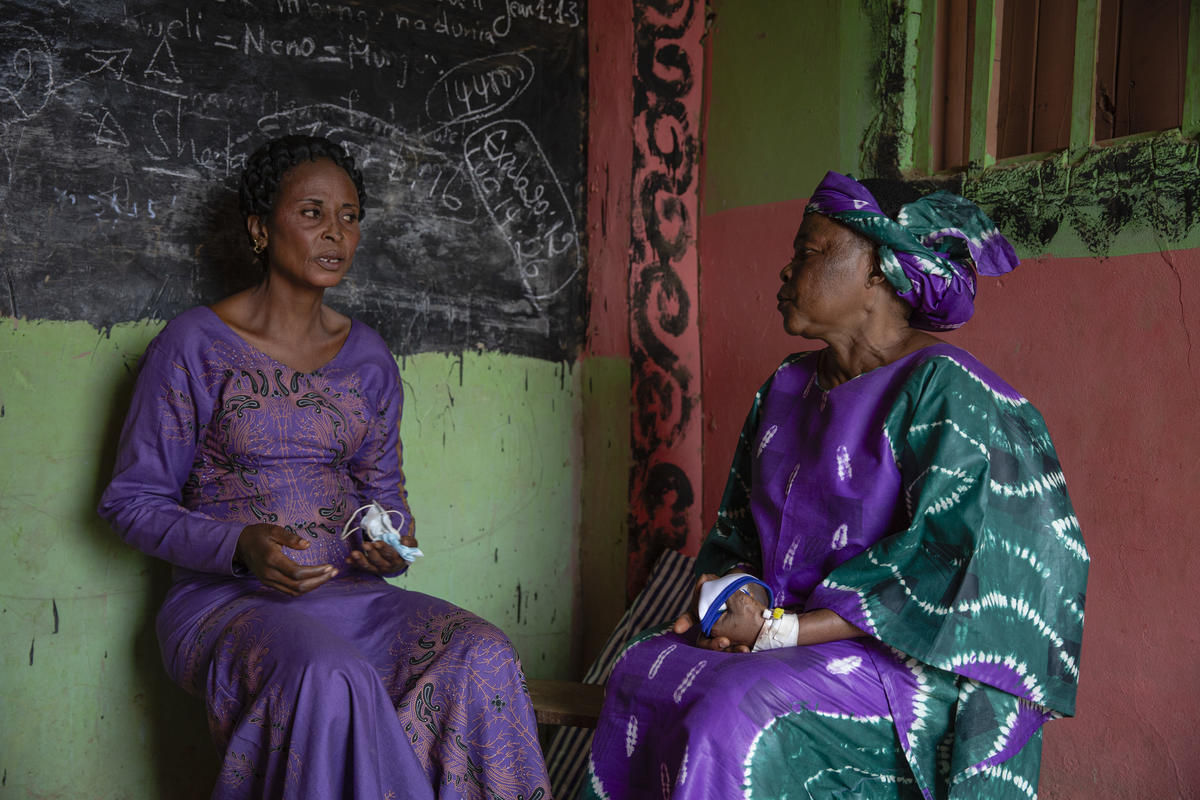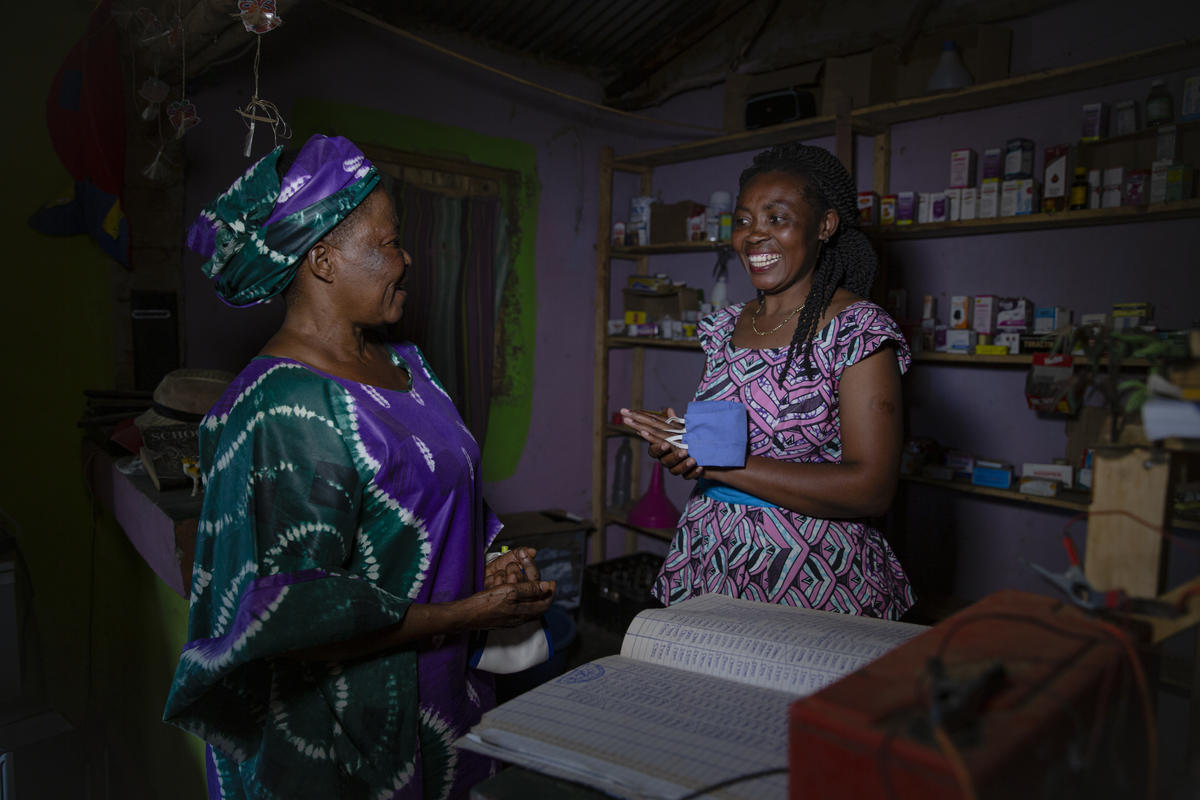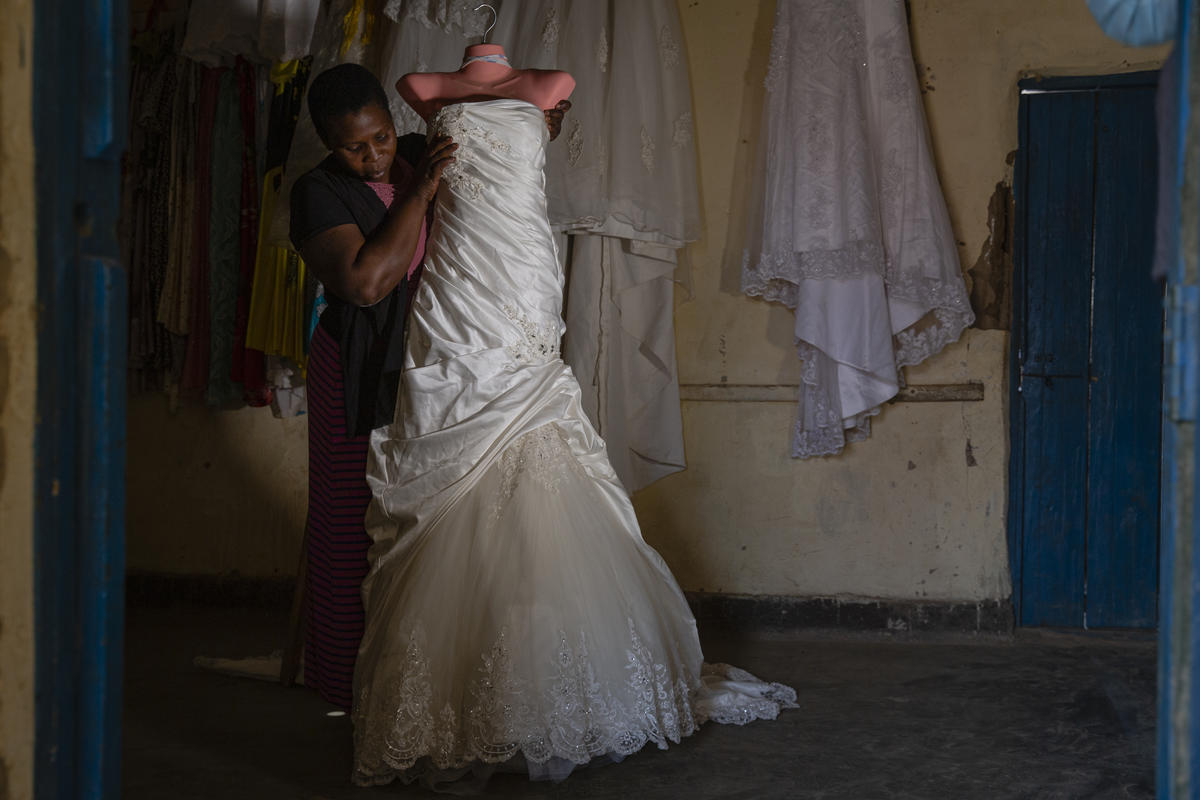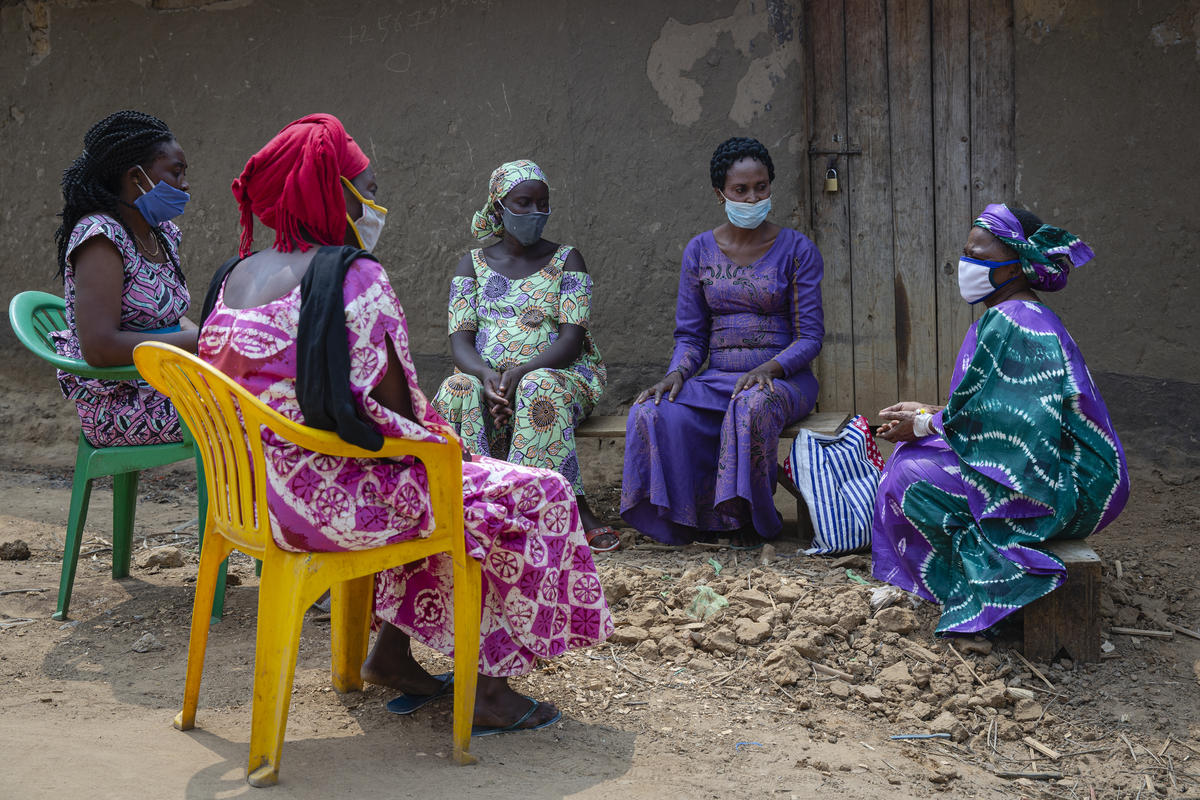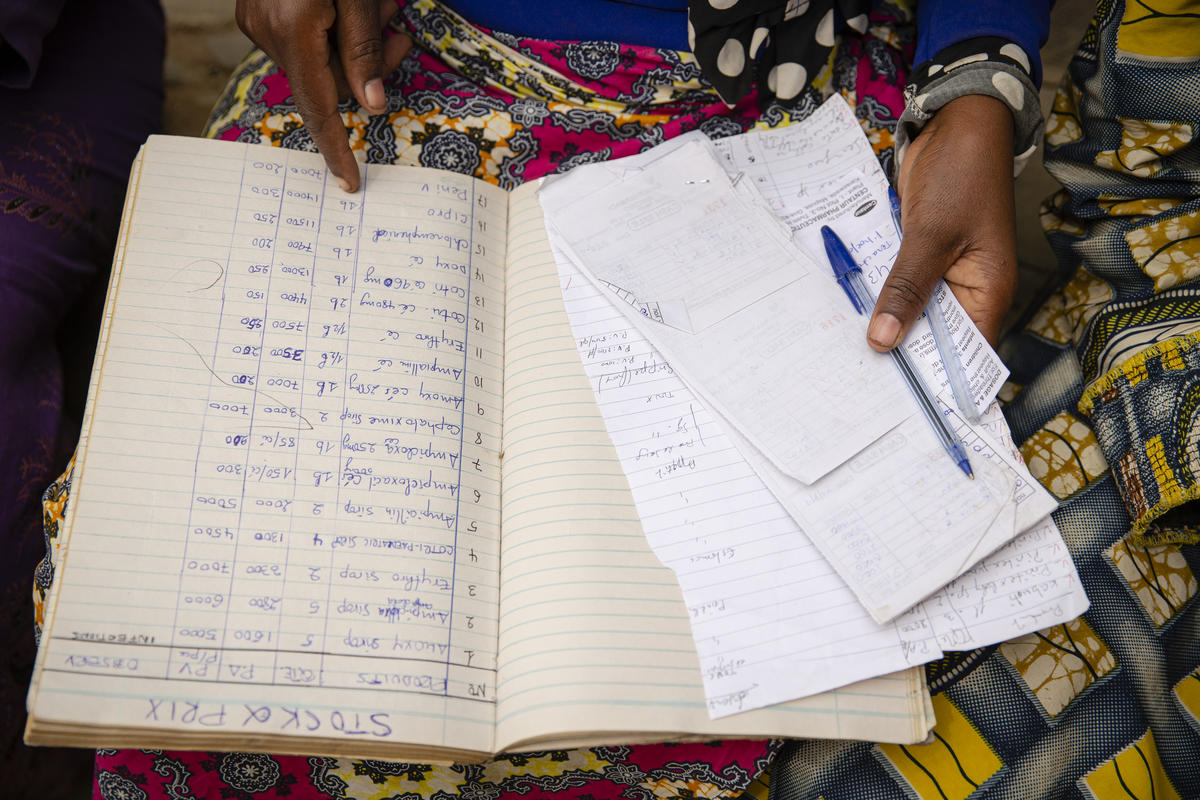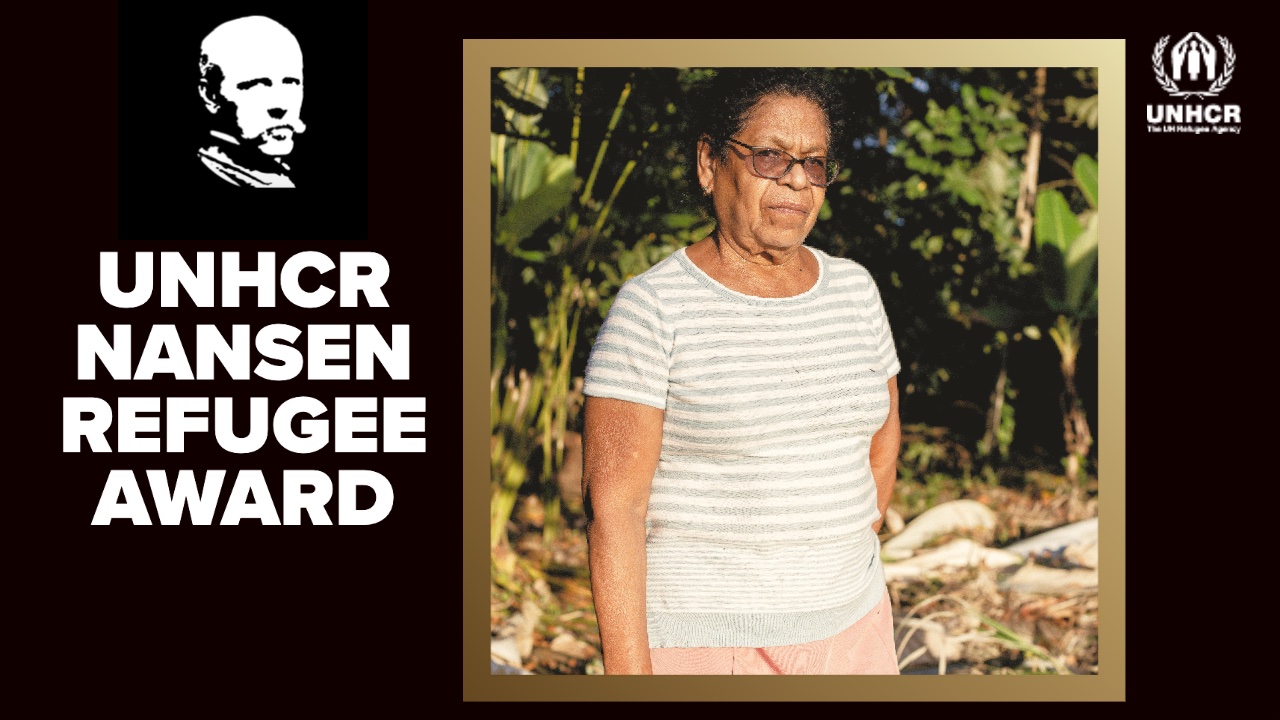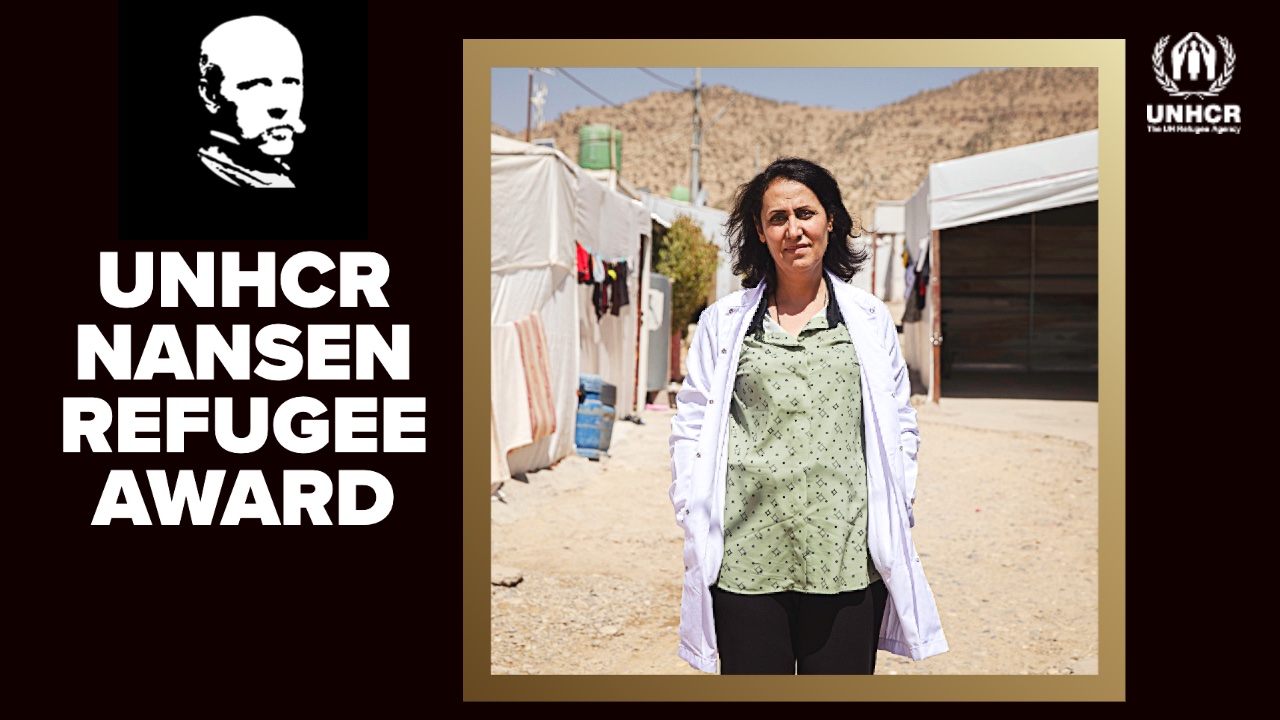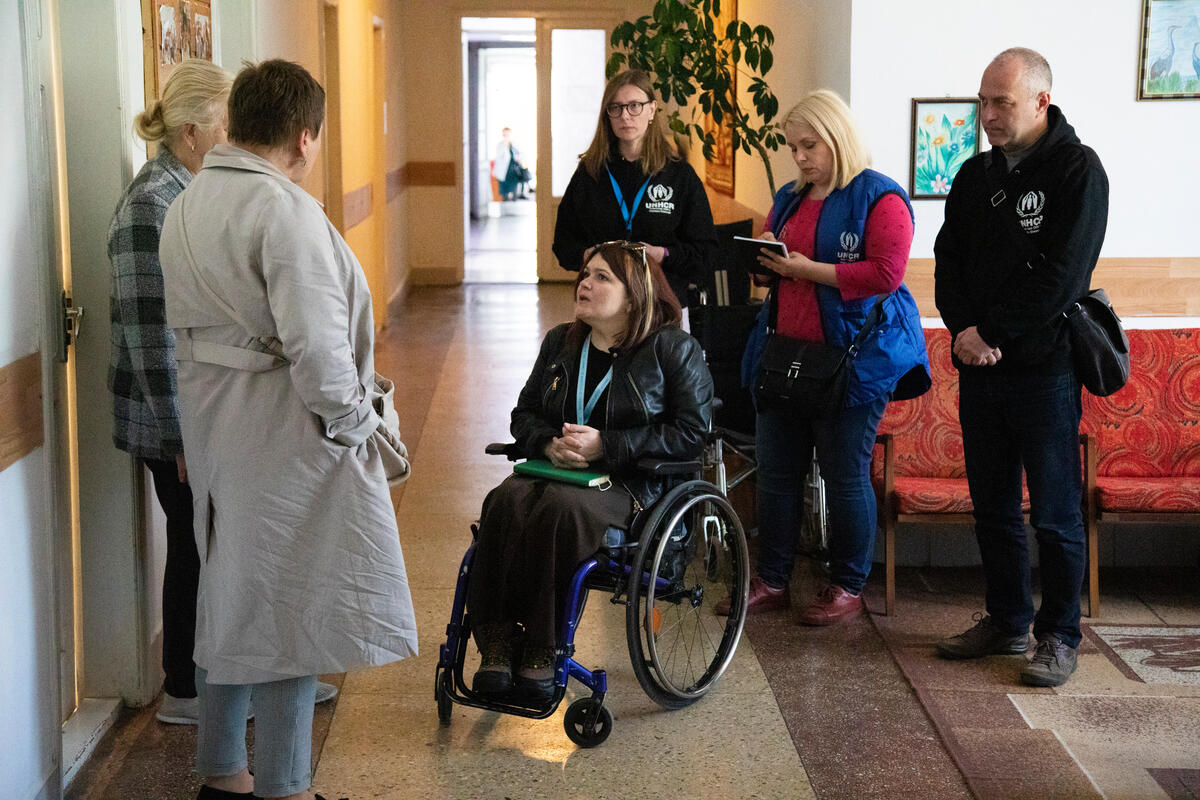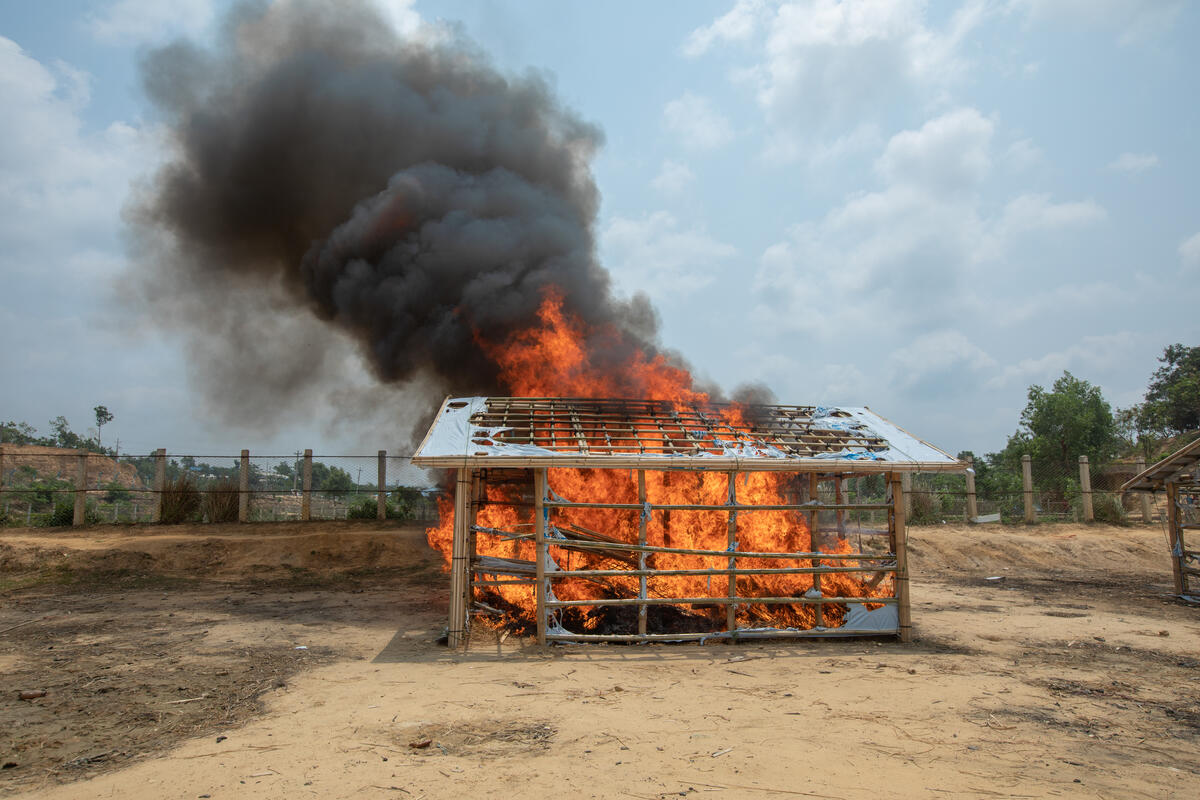Activist turns adversity into a fresh start for refugee women
Activist Sabuni Francoise Chikunda has touched many lives in the three years since she arrived at Uganda’s Nakivale refugee settlement.
To the children at the reception centre, the 49-year-old with a ready smile is a dedicated English teacher. To the women who meet every day to make handicrafts and discuss matters of concern at the Kabazana women’s centre, she is their founder and chairperson. And to the hundreds of women in the settlement who have survived sexual and gender-based violence, she is their counsellor and confidante.
“I want to help them forget the things they have gone through so they can start a new life,” says Francoise, as she stands in a field at Nakivale, looking around the vast settlement that hosts some 133,000 refugees.
Turning extreme adversity into a fresh start is deeply personal for Francoise, who reached the settlement in Nakivale in June 2017 at the end of an ordeal of violence and displacement that reached back decades.
“I want to help them forget the things they have gone through so they can start a new life.”
During the 1994 genocide in Rwanda, she survived a brutal attack. She subsequently endured violence, torture and rape at the hands of armed militiamen in her native Democratic Republic of the Congo, who kidnapped her and held her as a slave for years.
“I went through a lot ... I lost my home, my family, my job … everything,” she says softly. “I was raped several times. My husband and my four children were killed.”
She managed to flee to Uganda where in just six months – and despite the trauma she had undergone – she became a community leader, a volunteer teacher and a counsellor, thanks to her upbeat personality and positive outlook on life.
Her face lights up as she walks around the now empty classroom at Nakivale where she used to teach English before all lessons were stopped due to the COVID-19 pandemic.
“I love teaching, it is my hobby. It also keeps me busy,” she says. “The more I teach, the more comfortable I feel.”
Standing in this classroom appears to give her some form of release from the past.
“I treat the children like my own,” she adds. “I don’t have children, so when I’m with them, I’m so happy.”
Her own agonizing ordeal led her to seek out other survivors of violence at the settlement, beginning with a group of just 10 women who would meet at her home. They would share their experiences and – of vital importance – focus on the next steps they needed to take to remake their lives.
Her work is supported by UNHCR, the UN Refugee Agency, through its partner agency, the American Refugee Council, which in 2018 provided Francoise with space to set up the Kabazana Women’s Centre. Since its founding, more than 1,000 women have received training there in various income generating activities, ranging from tailoring to cooking, handicrafts, hairdressing and agriculture.
For her tireless activism, Francoise has been chosen as the regional winner for Africa for UNHCR's Nansen Refugee Award, a prestigious annual prize that honours those who have gone to extraordinary lengths to support forcibly displaced or stateless people.
The as-yet-undisclosed laureate of the award will be announced on 1 October. The prize itself will be presented by UNHCR, in a virtual ceremony on 5 October.
“Day by day, when others see the change and the improvement in these women, they keep coming to the centre,” says Francoise proudly.
As she walks around the settlement, she is joined by a group of women who greet her excitedly. They have not seen her in nearly three months, since she left for the capital, Kampala, for treatment.
“I'don’t think about what happened to me and in those moments, I don’t cry.”
Most of them are survivors of violence and beneficiaries of Francoise’s centre. Dressed in vibrant African print outfits, they hug Francoise, laughing loudly as they walk into a friend’s compound.
One of the women, Ntahobari, survived a horrific gang rape while fleeing the Congo in 2016. Separated from her husband and four children, she managed to make it to Uganda and has been in anguish since then. She does not know where her family are or even if they are still alive.
She met Francoise through the women’s centre where she has been helped to stay occupied.
“I don’t think about what happened to me and in those moments, I don’t cry,” she says of the time she spends with the other women.
Francoise understands the need to stay occupied, as she often does herself, to keep the bad memories at bay.
“You know when you are idle, the stress becomes a lot and you keep remembering the things you passed through,” she explains. “But when I’m busy, teaching the women and children, exchanging our experiences, it helps a lot.”
The women have opened various businesses and recently started making wine. But due to the COVID-19 restrictions on movement and subsequent lockdown, they had to adapt quickly and turned the winery into a pharmacy. They now plan to open a clinic.
Among those trained at the women’s centre is Neema Claire, who learned tailoring and hairdressing. Together with Francoise, they saved enough money to start a business, making and renting out wedding dresses and event decorations in the settlement.
“Every weekend we would rent out dresses to two, sometimes even four couples,” she says.
With COVID-19, business has slowed but the women diversified their shop and started a grocery.
“I have taught them to be independent and I am so proud.”
Looking ahead, Francoise would like to receive additional funding, materials for tailoring and space to continue working with a growing number of women and girls at the settlement.
“I want to see a change in their lives, socially and economically, while also introducing them to wider opportunities,” she says.
“I feel so good for healing my fellow refugees in these tough times,” she adds with a smile. “I have taught them to be independent and I am so proud.”
The Nansen Refugee Award is named in honour of Norwegian explorer and humanitarian Fridtjof Nansen, the first High Commissioner for Refugees and Nobel Prize winner, who was appointed by the League of Nations in 1921. It aims to showcase his values of perseverance and commitment in the face of adversity.
You can read about the other regional winners of the UNHCR Nansen Refugee Award here.


